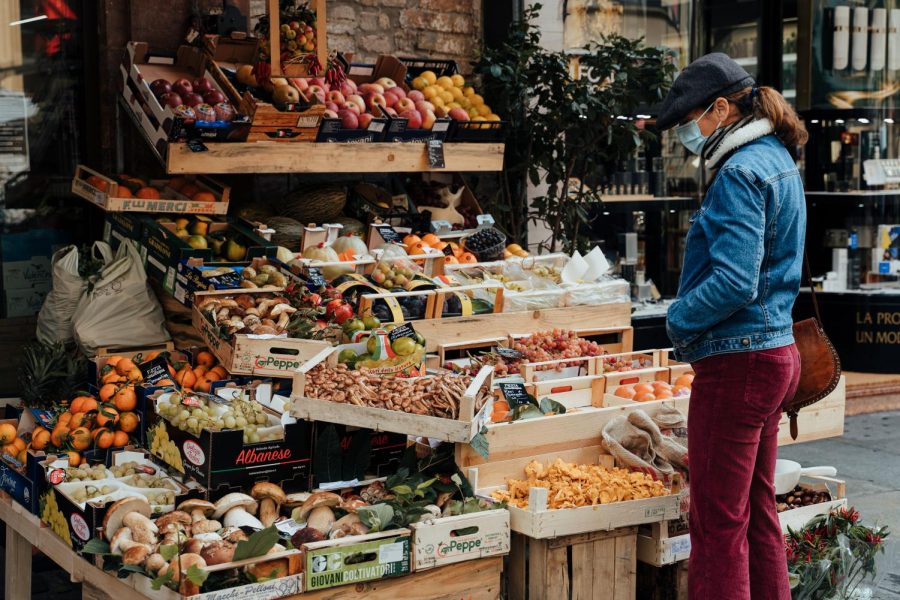Why Stores Should Stay Open After Employees Have Contracted COVID-19
Shoppers frequently wear face masks while buying the goods they need in order to prevent the spread of bacteria. (Photo/Gabriella Clare Marino/Unsplash)
April 23, 2020
While the majority of us are quarantined at home, a number of people are working hard to help the rest of society function as normally as possible. Unfortunately, a side effect of these critical infrastructure employees working is that they also are at a greater risk of catching the virus. Grocery store employees, for example, toil away tirelessly, providing access to food and essential items. Their role is vital, but the risk posed by work conditions and the large number of people who enter the stores prompts the question: should grocery stores stay open when employees have tested positive for COVID-19?
This question doesn’t have a simple yes or no answer. One side suggests that the supermarkets should remain open for as long as possible, because they provide necessities for people, and not everyone has alternate options if a store closes. If there is an emergency in a family and someone needs to grab any of their daily necessities as soon as possible, a closed grocery store could be harmful. However, if an employee is diagnosed with COVID-19, they run the risk of spreading it to other employees, even before they know they have it. As senior Tessa Wu notes, “I think closing these stores would obviously be a lot more helpful for this situation; however, people aren’t going to be able to buy basic necessities. If the stores want to continue to open for business, they need to take more precautionary steps to ensure all the employees and the customers are safe. A lot of these stores don’t protect employees by giving them masks and such. Another solution would also be allowing more options for online shopping, which would inherently solve both sides of the problem.” Closing the stores, according to Wu, would be the best option, but she did acknowledge that there are economic downfalls to that because employees would not be getting paid.
However, junior Skye Harris’ viewpoint provides a solution to that: “Although there have been cases across the state, I think it’s important for businesses to keep open as they are essential for people at this time. If workers are feeling unwell, the store should implement paid leave.”
Personally, I think that stores like Trader Joe’s and Giant should stay closed if one of their employees has coronavirus. Yes, it is important to have the essentials available for people, but if those products are contaminated with a virus from an employee, then the virus could spread to more people, which is detrimental. A better solution would be to expand methods that enable stores to have more options for food delivery, like the Giant Peapod system, which allows people to order groceries ahead of time. Additionally, if food could be ordered ahead of time, it could be delivered to someone’s car, with the employees wearing masks and gloves. This could, consequently, allow for the stores to close all their non-delivery functions.
No matter which way you look at it, however, it is clear that contact with other people should be limited, as social distancing is paramount to stop spreading the virus. There are pros and cons to all options, but as the whole country tries to stop the spread of the virus, stores themselves should decide what is best for society as a whole.








